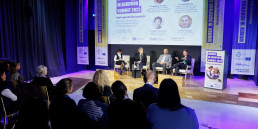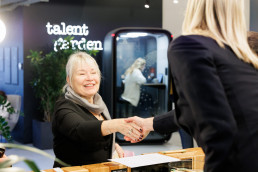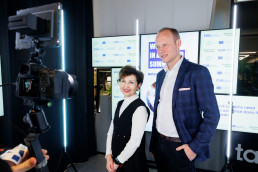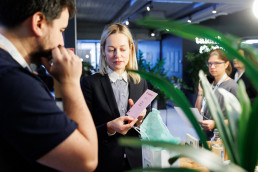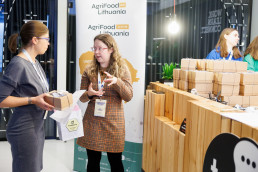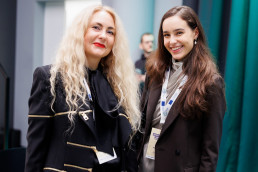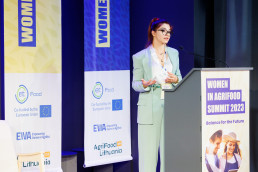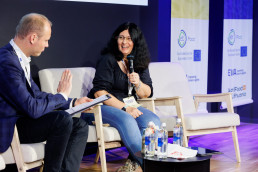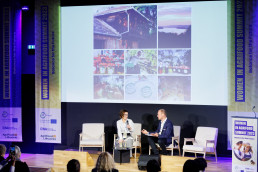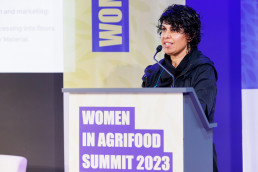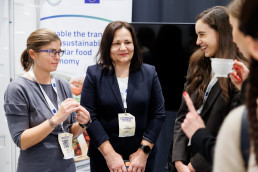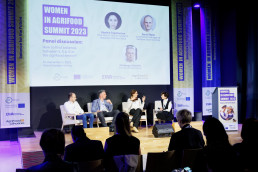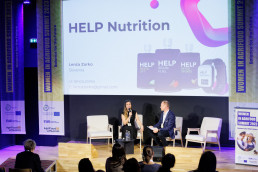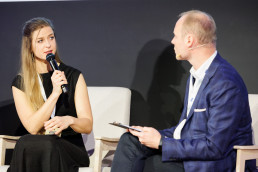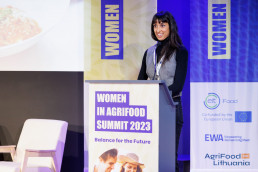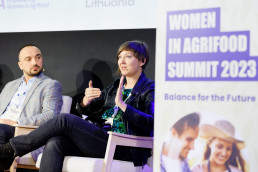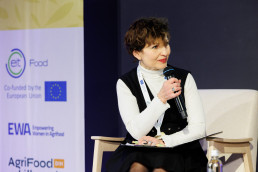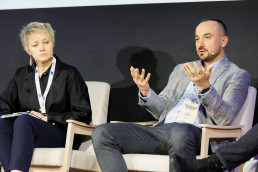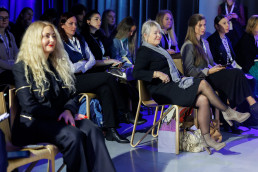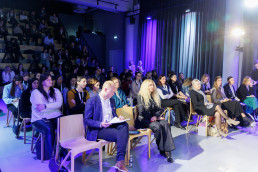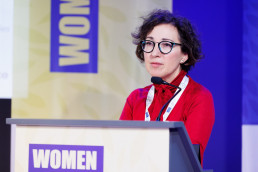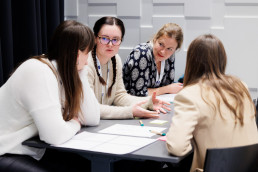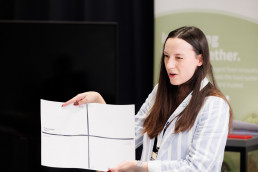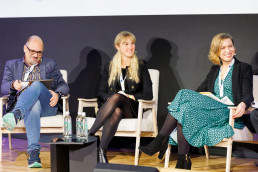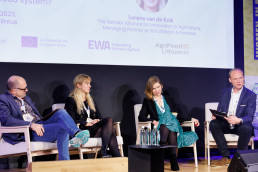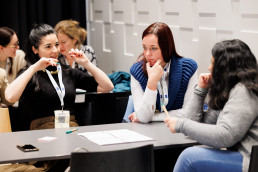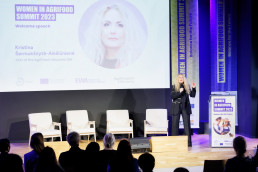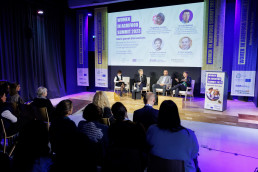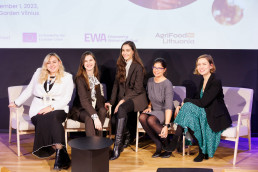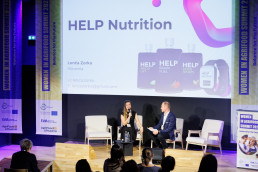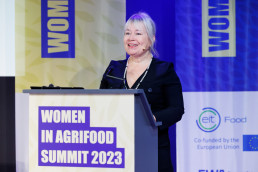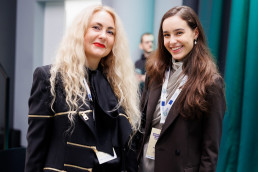Last week, Lithuania hosted the inaugural Women in Agrifood Summit 2023 at Talent Garden Vilnius, marking a significant stride in the transformation of the agrifood landscape. Organized by the EIT Food and facilitated by AgriFood Lithuania DIH, the conference served as the culminating event for the 4th edition of the EIT Food Empowering Women in Agrifood (EWA) programme, bringing together 16 exclusive speakers leading in their fields and 11 innovative women from all over the Europe committed to fostering a balanced evolution in the industry.
Throughout the summit, participants with an interest in agriculture, food, technology, and business had the opportunity to hear from top level experts in their field. Engaging in critical discussions, these professionals explored how collaboration between genders can positively impact the future of the business.
The Walks of EWA Fame featured 11 mentees from this year’s EWA program. Women leaders and founders of agri-food startups from Poland, Estonia, Ukraine, Serbia, Slovenia, Greece, Italy, Portugal, Spain, Turkey, and Romania showcased their innovative ideas and success stories. On-site attendees at the workshops focused on developing skills and exchanging insights on current challenges in the agrifood sector. The Women In Agrifood Summit also served as a platform for the women to develop valuable connections with potential partners.
Opening speeches, keynote presentations, and panel discussions in the event under the theme “Balance for the Future: Why Food Systems Need Balance and What Does It Really Mean?” echoed a key message. Achieving future balance in the agrifood sector requires an interdisciplinary approach and collaboration if we want to produce outcomes with added value on a global scale.
The director of the EIT Food North-East, Marja-Liisa Meurice, set the tone for the day with a strong reminder that empowering women and bridging the gender gap in the agrifood system isn’t just about statistics; it’s about enhancing the well-being of women, their families, and, by extension, the entire society.
“Current and future EWA alumni on the journey towards a more inclusive and empowered agrifood sector become part of a supportive network within the realm of food innovation. With over 360 EWAs contributing to this transformative initiative over the years, today’s gathering is a testament to the growing strength of our EIT Food community and the achievement of the goal to create an agrifood ecosystem where all its key elements – science, economics, social and diverse sustainability, and circularity – are well-balanced,” she said in her welcoming words.
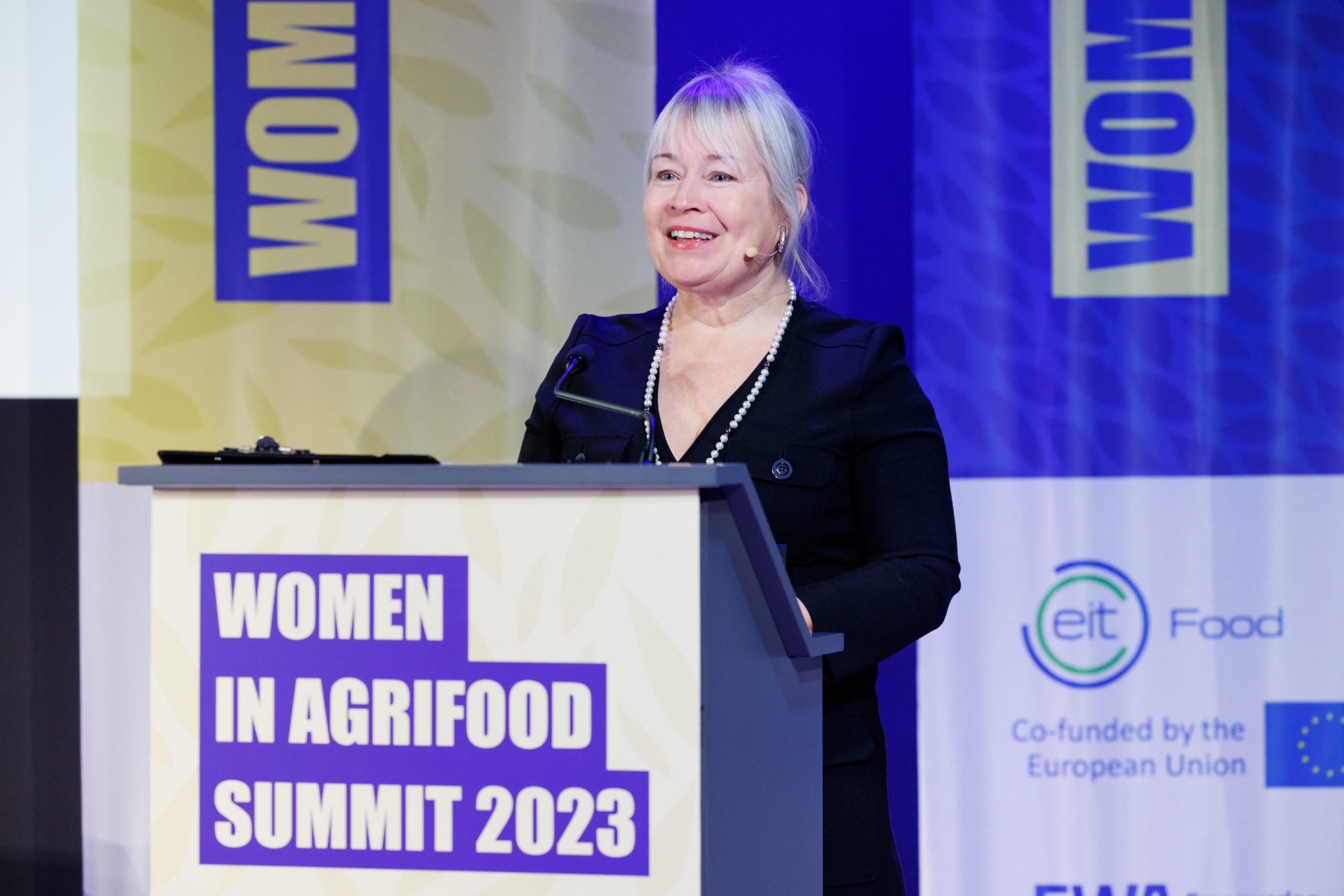
The CEO of AgriFood Lithuania DIH and a patron of the Lithuanian EWA programme, Kristina Šermukšnytė-Alešiūnienė, delivered an empowering opening speech, stating that a robust ecosystem rooted in a solid foundation not only elevates individual member states but enriches the collective experience for us all.
“Despite being the least digitalized and traditionally conservative, the agrifood industry holds unparalleled potential for transformation, as validated by scientific insights. Ladies, this is your opportune moment, your rightful place to innovate and redefine norms because the ability to cultivate a robust ecosystem and foster balance is ingrained in your DNA. And don’t forget, innovation is not only about creating something entirely new; it’s also about using the ecosystem or existing tools in a new way,” she emphasized.
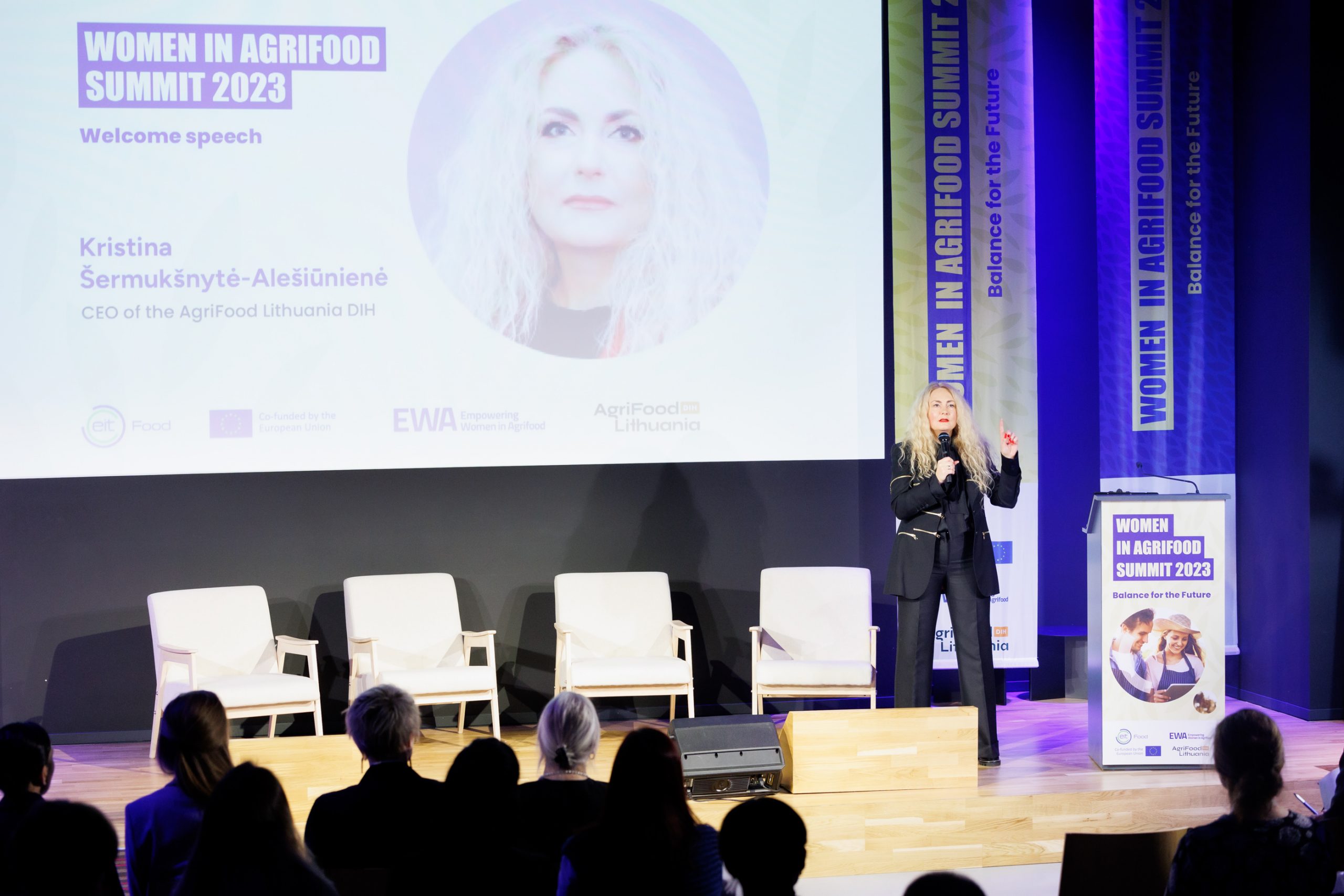
According to Agnieszka Wojdyr, a policy officer from DG GROW at the European Commission, organizations with a value for inclusion are six times more innovative and agile and eight times more likely to perform better business results than those with a less diverse culture. However, the impact of diversity is much bigger than that of finance.
“The Commission’s Gender Equality Strategy for the period 2020–2025 stands as a beacon of commitment, reinforcing our dedication to spearheading an equality perspective on a global scale. By addressing gender disparities and fostering inclusivity, we strive not only to transform organizational landscapes but also to contribute significantly to the broader societal narrative, advancing a more equitable and just world for all,” said the policy officer in a thought-provoking keynote speech, stressing the significance of diversity in addressing the planet’s challenges, which is more crucial to invest in than ever.
The panel discussion focused on various pragmatic solutions to achieve gender balance in the agrifood sector from diverse angles and discussed how to shape its future. One of the most prominent summarizing insights was the untapped potential of women leaders in Europe to build an innovative and entrepreneurial ecosystem, identified in recent years.
To advance sustainably, we must leverage the wealth of these talents. Yet, empowering women alone is insufficient within a flawed system. The agrifood sector, integral to both challenges and opportunities, offers a pivotal point for transformation. By collectively addressing pressures on the agrifood sector and reevaluating our relationship with food, we hold the power to elevate women’s status. This transformative shift extends beyond gender empowerment, embracing a holistic societal redefinition. Through collaborative efforts, it becomes possible to propel comprehensive change, enabling women’s full workforce participation and contributing significantly to global prosperity.


